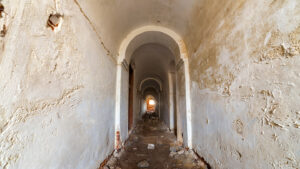Otto Kienitz – The Narrow Corridor of State Capacity: Taxation, Participation, and Local Self-Government
Event Actions

Throughout history, states have struggled to gain the capacity to tax. How then do weak states build state capacity? Classic arguments about war and parliaments misattribute state-building to taxation and representation. Surveying state-building across Europe and Eurasia, I find that states expanded revenues while entrenching elite privileges in representative assemblies. By contrast, I argue that participation, not representation, was the key to navigating the narrow corridor of state capacity by redirecting elite effort away from rent-seeking and towards sustainable development. I test my theory by exploring the relationship between state-building and local democratization in the Russian Empire, in which a nineteenth century local government reform (the introduction of the zemstvo assembly) incentivized local elites to participate in the fiscal system for the first time. I show how local democracy shaped the behavior of the landowning nobility, aligning state-elite interests in state-building in ways national representation could not. Challenging the received wisdom of what makes effective states, I point to reforms that bundle taxation and participation to overcome the obstacles to state-building historically and today.

